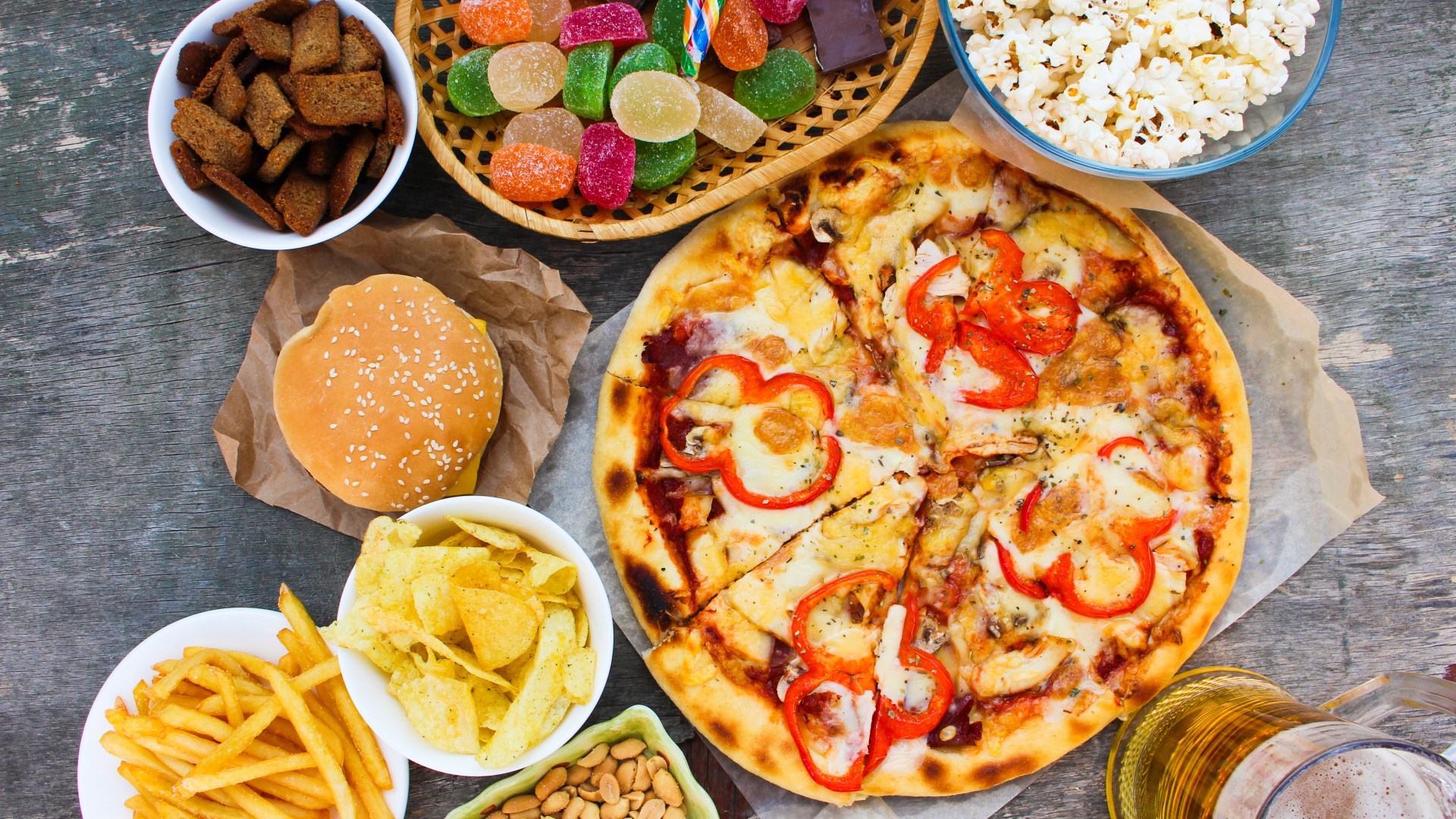ULTRA-PROCESSED foods, alcohol, tobacco and fossil fuels are killing 2.7million people every year across Europe, the World Health Organization has warned.
Experts said “powerful industries” are driving ill health and premature death because they interfere in government policies and efforts to cut cases of cancer, heart disease and diabetes.
2

2
In a new report, the WHO called for “strict regulation” and for officials to push health policies which are regularly “challenged, delayed, weakened or stopped” by industry.
The WHO said “more than 7,400 people are dying every day” in its European region due to harmful products and practices.
It said: “These commercial products contribute to 24 per cent of all deaths, including significant mortality from cardiovascular diseases (51.4 per cent) and cancer (46.4 per cent).”
Meanwhile, the global picture shows that tobacco, UPFs, fossil fuels and alcohol cause 19million deaths per year, or 34 per cent of all deaths.
Breaking down the data, WHO said 1.15million deaths annually in Europe are caused by smoking, 426,857 by alcohol, 117,290 by diets high in processed meats and 252,187 by diets high in salt.
These figures do not even include deaths caused by obesity, high blood pressure, high blood sugar or high cholesterol levels – all of which are linked to unhealthy diets, it said.
The report called on governments to recognise the tactics used by industry – such as blaming individuals, marketing, spreading disinformation, promotions on social media, lobbying and “subverting science”, such as by funding research that promotes their goals.
The WHO said the “primary interest of all major corporations is profit”, while having a large market share “often also translates into political power”.
It added: “Regardless of the product they sell, their interests do not align with either public health or the broader public interest.
“Any policy that could impact their sales and profits is therefore a threat, and they should play no role in the development of that policy.”
The report said that, with the exception of rules around tobacco, “global efforts to regulate harmful marketing have, at best, been underwhelming”.
It added: “While legal measures regulating alcohol and unhealthy food marketing are in existence in several countries across the WHO European region and across the world, these are often narrow in scope, focused on specific media or settings, certain population groups or on specific marketing techniques, and therefore confer insufficient protection.”
Furthermore, voluntary codes where industry says it can regulate itself are ineffective, WHO said.
How ultra processed is YOUR kitchen?
Ultra processed foods (UPFs) were defined by Brazilian researchers who made the NOVA classification system. It breaks foods into groups depending on how processed they are. The most natural foods are in group 1, while the most processed are in group 4.
The groups do not entirely indicate how healthy a food is. However, it does indicate how processed it is – and studies have linked UPFs to a number of diseases.
How does your kitchen compare to the following groups?
Unprocessed or minimally processed foods (group 1)
- vegetables and fruits (fresh or frozen)
- dried fruits with no added sugar, honey, or oil
- grains and legumes (chickpeas, lentils)
- meat, poultry, fish, seafood, eggs
- milk without added sugar
- plain yogurt with no added sugar
- nuts and seeds
- spices and herbs
- tea, coffee, water
Processed culinary ingredients (group 2)
- iodized salt
- salted butter
- sugar and molasses from cane or beet
- honey extracted from combs
- syrup from maple trees
- vegetable oils crushed from olives or seeds
- butter and lard from milk and pork
- starches extracted from corn and other plants
- vegetable oils with added anti-oxidants
- vinegar with added preservatives
Processed foods (group 3)
- canned vegetables, fruits, and legumes
- fruits in syrup
- salted or sugared nuts and seeds
- salted cured or smoked meats
- canned fish
- artisanal breads and cheese
Ultra-processed foods (group 4)
- pop and fruit drinks
- sweetened yogurt
- sweet or savoury packaged snacks (e.g., cookies)
- candies and cake mixes
- mass-produced packaged breads and buns
- margarines and spreads
- breakfast cereals
- cereal and energy bars
- energy drinks
- instant soups, sauces, and noodles
- poultry and fish nuggets, hot dogs
- many ready-to-heat products: pre-prepared pies, pasta, and pizza dishes
Dr Hans Kluge, WHO regional director for Europe, said: “Four industries kill at least 7,000 people in our region every day.
“The same large commercial entities block regulation that would protect the public from harmful products and marketing, and protect health policy from industry interference.
“Industry tactics include exploitation of vulnerable people through targeted marketing strategies, misleading consumers, and making false claims about the benefits of their products or their environmental credentials.
“These tactics threaten public health gains of the past century and prevent countries from reaching their health targets.”
Belgian deputy prime minister, Frank Vandenbroucke, who launched the study, said: “For too long we have considered risk factors as being mostly linked to individual choices.
“We need to re-frame the problem as a systemic problem, where policy has to counter ‘hyper-consumption environments’, restrict marketing, and stop interference in policy making.”
In the UK, the Tobacco and Vapes Bill – which would restrict the marketing of vapes to children and ban children from taking up smoking – failed to make it through Parliament before it was dissolved for the General Election.
Plans to tackle the promotion of foods high in fat, sugar or salt have also been pushed back to 2025.
Kendra Chow, policy and public affairs manager at the World Cancer Research Fund, who contributed to the report, welcomed the “hard-hitting” study, adding that “public health must be prioritised over profits”.
But Rebeca Fernsndez, science director at FoodDrinkEurope, which represents the food and drink industry, said that connecting the consumption of UPFs with tobacco and fossil fuels was “outrageously misleading”.
“We all need food – and we all need processed food,” she said.
“Unfortunately the WHO report does not acknowledge that there is no agreed definition of what ultra-processed foods are, let alone their impact on health, which is why last year the UK Government’s own independent Scientific Advisory Committee on Nutrition concluded the evidence so far to be insufficient to use UPF terminology to define public health guidelines.
“Instead, well-established food nutrition science the world over tells us that the best way to tackle obesity and non-communicable diseases is to focus on the nutrition content of a food and how often you consume it, in conjunction with what type of lifestyle you lead.
“That’s why food and drink makers here in Europe are playing their part by reformulating products to cut salt, fat, and sugars whilst boosting fibre and micronutrients.”
Healthy UPF swaps
BREAKFAST
- Swap processed cereal for yoghurt and oats
- Swap seeded bread with jam or a bakery sliced loaf with nut butter
LUNCH
- Swap ham sandwiches for pasta salad with homemade pesto
- Swap crisps for homemade pitta chips
SNACKS
- Swap cereal bars for homemade granola bars
- Swap dried fruit for fresh fruit
DINNER
- Swap supermarket chicken nuggets for homemade chicken nuggets
- Swap supermarket pizza for a DIY pizza
- Swap a jarred tomato sauce for tinned tomatoes with herbs
Source: Nutritional therapist Daisy Nicomanis




